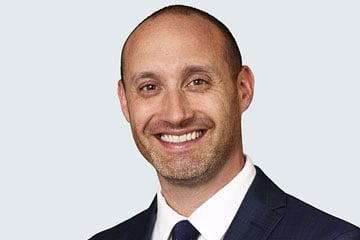
Many marijuana dispensaries, currently facing varying degrees of enforcement of their “grey market” activities across the country, are hoping to participate in the legal market. But legal experts have differing predictions about how the impending new legal framework will affect how these storefronts and their owners, whether they continue to sell illegally or not, will be treated by the authorities.

“I think when the law changes it is going to create some uniformity in how enforcement takes place,” says Matt Maurer, who is a partner at Torkin Manes LLP and vice-chairman of the firm’s cannabis law group. He says he has been contacted by many individuals who formerly operated in the grey market and want to transition into the legal market, and he thinks that the illegal storefronts will disappear relatively quickly after legalization.
“From the storefront perspective, it is really easy” to enforce the law post-legalization, he says. “Now, the police walk in and can arrest anyone working there and the penalty is up to 14 years." Under the new Cannabis Act, individuals can face imprisonment for up to 14 years for “selling without authorization.”
Kirk Tousaw, a lawyer based in Vancouver and Victoria who has represented more than 200 retailers who were recently charged with trafficking, is not predicting a more consistent approach to enforcement. He points out that B.C., unlike neighbouring Alberta, has indicated it will be much more open to allowing those currently involved in running dispensaries to participate in the new regime.
“Alberta, which otherwise has probably the most robust and open private retail system in the country, has said ‘Look, if you participate in the unlawful industry in the past we don’t want anything to do with you,'” Tousaw says.
“It’s actually going to look a lot like it looks now in the sense of being individualized and local to particular jurisdictions,” he says. “I think places that have been historically tolerant or don’t think this is a big deal or something they want to spend resources on will probably not spend a lot of time trying to crack down on dispensaries.”
In B.C., unlike other provinces where dispensaries have been entirely unregulated, some storefronts that sell medical marijuana are doing so with valid business licences. But Tousaw says that, in Vancouver, where the municipality launched its “marijuana-related retail” bylaw in 2015, only around 19 licences have been awarded despite hundreds of applications. “I just think it’s been a bit of a difficult rolling-out process for these municipalities and perhaps rightly so. They were doing something fairly novel, which is the licensing of essentially unlawful businesses on zoning and land use grounds.” Under the Controlled Drugs and Substances Act, it is still unlawful to operate any storefront retail store selling cannabis, whether medical or non-medical, despite the municipal bylaws.
Tousaw says municipalities across B.C. have subsequently filed lawsuits against dispensaries that were not complying with the bylaws, seeking orders from the court compelling them to shut down. Lawyers for two dozen illegal marijuana dispensaries recently argued in court that the bylaws are unconstitutional since the storefront sale of the drug is a federal — not a municipal — matter.
In Ontario and other provinces without any licensed storefronts selling marijuana, enforcement poses several challenges. Maurer points out that in Toronto, for example, where there are stores “all over the place” that are theoretically illegal, “the issue is not sending the police to kick down the door and take everything, the issue is what happens after.” Maurer says those arrested in a raid are often not the owner of the business but often “younger people getting that work at the counter,” and “these people are just store clerks, for lack of a better term, and their culpability is not necessarily as great as the owner.”
Laying charges often involves “onerous paperwork,” too, Maurer says. “I’ve heard police officers say that, for example, if they see a whole bunch of edibles and gummy bears that they have to take a sample of every bear and send it to the lab. And it’s got to get tested, so you know what’s in it, and you’ve got to go through this whole evidentiary process to figure out what’s in the product.”
Maurer does think that other methods used by municipalities in Ontario, such as bringing civil injunctions against some owners and landlords, has been effective to some degree. “It’s funny, because you think a civil penalty would not be as motivating as a criminal penalty for these people,” he says. “But what [the city] got was an injunction restraining the landlords from allowing that business to continue to use the property. So, in many cases, if not most, the dispensary doesn’t own the building, it rents [it].” Landlords who receive injunctions are then motivated to prevent a dispensary from operating on their property, since they may lose their property or face jail time if they don’t.
For Tousaw, those running the illegal dispensaries should be brought into the fold post-legalization. “One interesting thing to watch play out will be in those jurisdictions that allow for private retail how easy is it going to be for existing stores to transition from being out in the shadows and into the light [and] how our municipalities and provincial governments can support and assist those transitions. We can use all the people who have been doing it, they know what they’re doing, they’re good at it. There’s a lot of expertise and knowledge in the illicit industry that, you know, ultimately, I think it’s best for everyone if they’re brought into the fold rather than being excluded.”